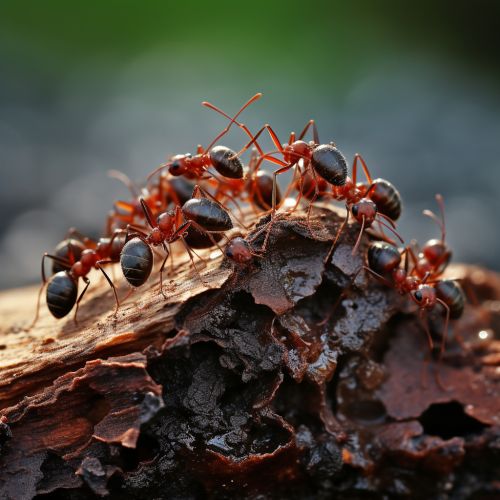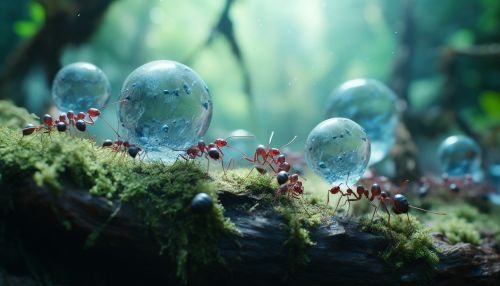Superorganism
Definition
A superorganism is an organism consisting of many organisms. This is usually meant to refer to a social unit of eusocial animals, where division of labour is highly specialised and where individuals are not able to survive by themselves for extended periods of time. Superorganisms are a subset of colonial organisms, and can be thought of as being similar to a higher organism. The concept of the superorganism is under strong debate in the scientific community.


Characteristics
Superorganisms exhibit a form of "complexity threshold" or "qualitative transformation", a concept borrowed from phase transitions in physical systems. In the superorganism, once the society has achieved a certain level of complexity, it becomes qualitatively different, functioning as a single organism on a higher level of organization. The exact threshold of complexity needed to achieve this state is still a topic of debate in the scientific community.
Examples
One of the most commonly cited examples of a superorganism is the eusocial insect colony, such as those of ants, bees, and termites. These colonies consist of a queen, who is the only sexually reproductive member of the colony, and her offspring, which are divided into reproductive males and sterile workers. The colony functions as a single organism, with the individual insects acting as cells in a larger body.
Other examples of superorganisms can be found in the animal kingdom, such as the Portuguese man o' war (Physalia physalis), which is a colonial organism made up of specialized individual animals (of the same species) called zooids or polyps. These polyps are attached to one another and physiologically integrated to the extent that they are unable to survive independently, and therefore they function collectively as a single organism.
Controversy
The concept of the superorganism has been controversial in the scientific community. Some scientists argue that the term is merely a metaphor, and that it does not accurately reflect the biological reality of these organisms. Others argue that the concept is a useful tool for understanding the complex interactions and behaviors of these organisms.
